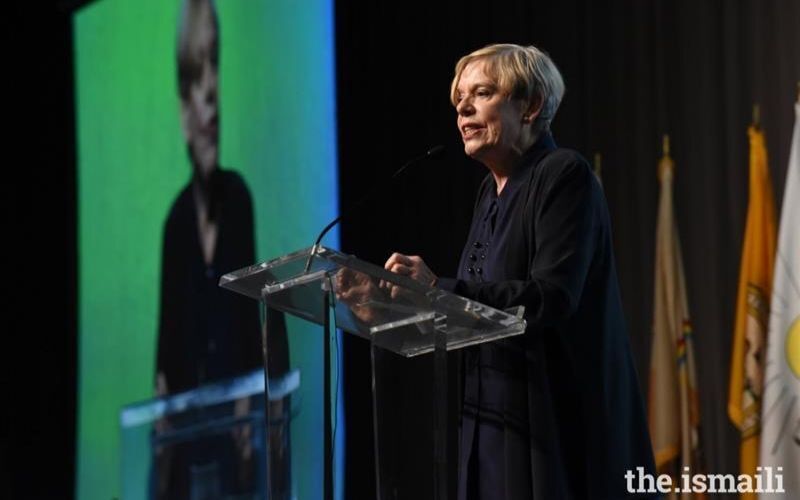Karen Armstrong is the founder of the Charter of Compassion. The essence of Karen Armstrong's writings lies in her commitment to promoting understanding, compassion, and empathy among individuals of diverse religious and cultural backgrounds. She encourages the study of religions, the practice of compassion, and the pursuit of common values as pathways to fostering peace, harmony, and a deeper appreciation of the human quest for meaning and transcendence.
- Comparative Religion: Armstrong's writings emphasize the importance of studying and understanding different religious traditions. She encourages comparative analysis of religions to uncover common threads, shared values, and universal aspirations, highlighting the underlying human quest for meaning, purpose, and transcendence.
- Historical and Contextual Approach: Armstrong emphasizes the significance of historical and contextual understanding when interpreting religious texts, rituals, and practices. She emphasizes the need to consider the social, cultural, and political contexts in which religions emerge and evolve, challenging simplistic and reductionist interpretations.
- Compassion and the Golden Rule: Armstrong champions compassion as a central ethical principle found across religious traditions. She argues for the importance of practicing the Golden Rule - treating others as we would wish to be treated - as a foundation for fostering understanding, empathy, and harmonious relationships among diverse individuals and communities.
- Rejection of Religious Fundamentalism: Armstrong critiques religious fundamentalism and its tendency to promote exclusivism, intolerance, and violence. She advocates for a more nuanced and inclusive approach to religion that encourages dialogue, appreciation of diversity, and recognition of the shared human quest for spiritual growth and transcendence.
- Interfaith Dialogue and Understanding: Armstrong emphasizes the value of interfaith dialogue as a means to bridge religious divides, dispel stereotypes, and promote understanding. She encourages individuals from different religious backgrounds to engage in respectful and open conversations, seeking common ground and building relationships based on shared values and aspirations.
- Mystical and Spiritual Dimensions: Armstrong explores the mystical and spiritual dimensions of religious traditions, highlighting the transformative power of spiritual experiences and practices that transcend dogmas and rituals. She emphasizes the importance of cultivating personal spirituality and inner exploration as a means to deepen one's understanding of the divine and connect with a larger, transcendent reality.
- Secular Ethics and the Role of Religion: Armstrong engages in discussions about the relationship between religion and secular ethics. She argues for the importance of incorporating religious insights into broader ethical frameworks, recognizing that religious traditions have historically provided moral guidance and inspired individuals to work for justice, compassion, and the well-being of all.
- Writing for a Wide Audience: Armstrong's writings are accessible and aimed at a wide audience, making complex religious and historical concepts more understandable and relatable. She strives to bridge the gap between academic scholarship and the general public, encouraging broader engagement and fostering a more informed and empathetic approach to religion.

